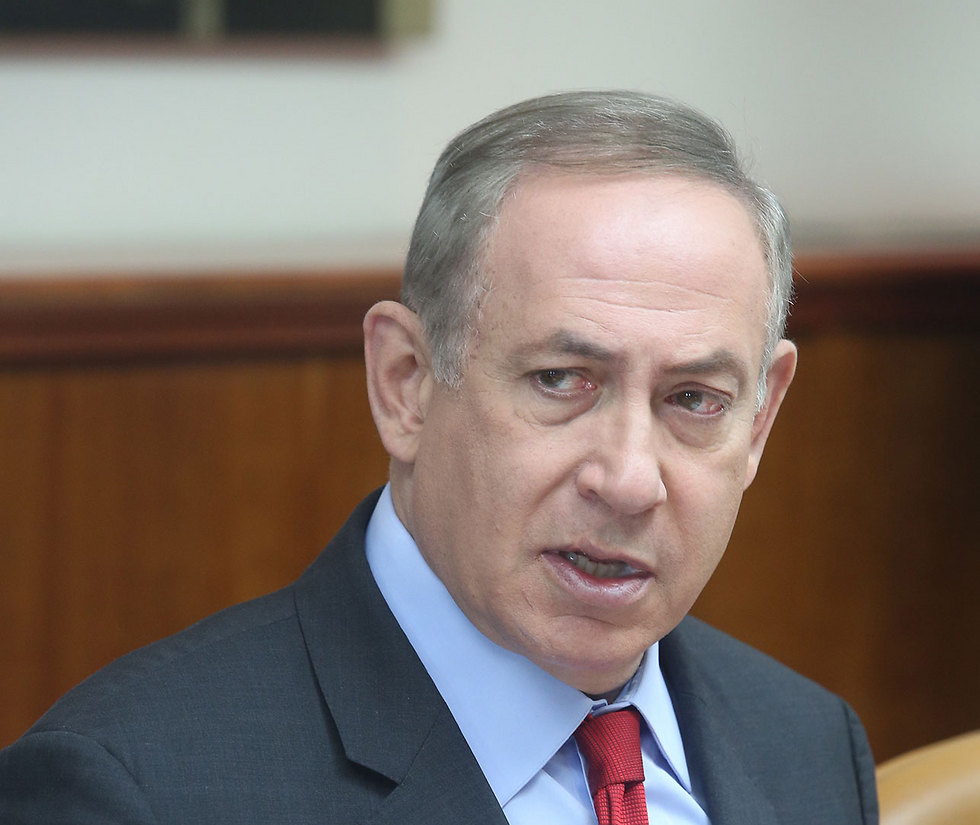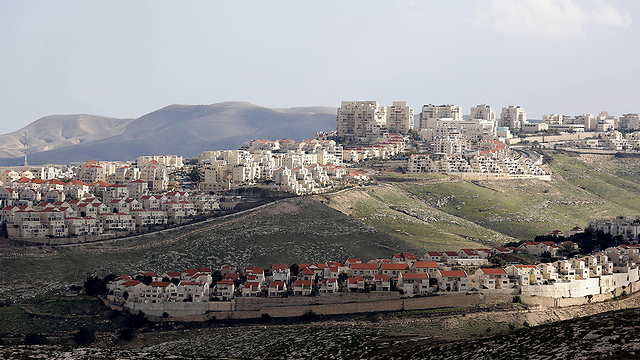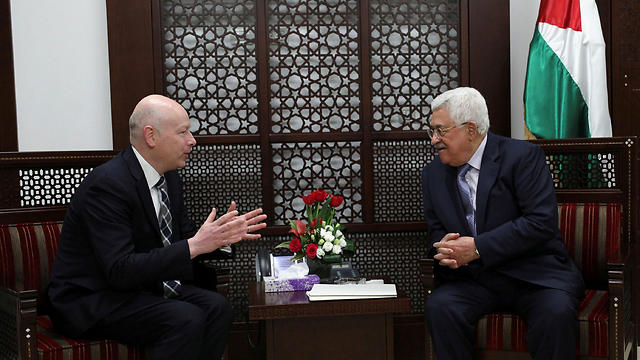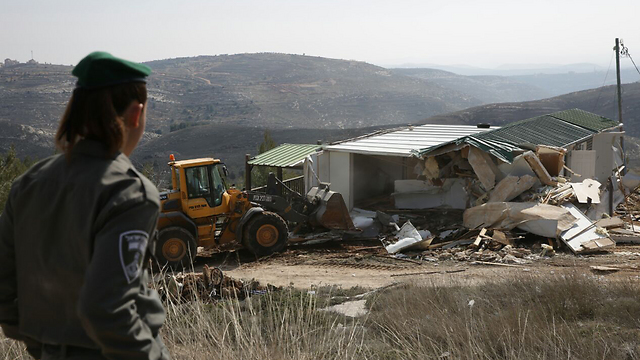
Government to curb settlements footprint
With the new policy, the government said it would attempt to exercise some restraint in expanding the physical footprint of settlements, though it did not specify any slowdown in construction.
With the new policy, the government said it would attempt to exercise some restraint in expanding the physical footprint of settlements, though it did not specify any slowdown in construction.
Netanyahu had promised to build the new settlement to replace Amona. Pro-settler hard-liners who dominate his coalition and oppose Palestinian statehood on security or religious grounds had pressed him to keep that promise.
But Netanyahu also faces pressure from Trump to rein in settlement construction to help revive the stalled peace process with the Palestinians.
Netanyahu told ministers to take Trump's position "into consideration," calling for restraint to be shown "to allow progress in the peace process."
Under the guidelines, new construction would be built "within existing developed areas, when possible." If that is not possible, then it would be allowed adjacent to already built-up areas. If that also is not possible "because of legal, security or topological constraints," building would be permitted as close as possible to existing construction.
White House envoy Jason Greenblatt has already made two visits to the region, meeting with Israelis and Palestinians and attending an Arab summit in Jordan this week. Greenblatt has been working with the Israelis on a series of understandings over settlement construction in hopes of restarting peace talks that collapsed over two years ago -- in part over the thorny issue of settlements.
A White House official sought to play down the announcement Thursday of the new settlement, saying Netanyahu made his promise to the Amona settlers before Trump laid out his vision. But the official, who agreed to discuss the matter on condition of anonymity because he was not authorized to speak publicly about it, signaled that the White House would take a tougher line down the road.
Thursday's announcement said the new settlement would be built near the settlement of Shilo, close to the former site of Amona. It also said the government had approved tenders to build 2,000 new apartments from previously approved settlement projects.
The new settlement approval was sharply criticized by Palestinians.
Yusuf Mahmoud, spokesman for the Palestinian government in the West Bank, said "This is a new escalating Israeli step and it shows that the Israeli government is persistent on hindering any efforts to restore the peace process."
Another senior Palestinian official, speaking on condition of anonymity because he is not allowed to brief media on the issue, said Palestinian policy now is to maintain relations and avoid confrontation over the issue with the Trump administration ahead of a visit to the White House by President Mahmoud Abbas in April.
Israel's anti-settlement watchdog group Peace Now also condemned the decision to replace Amona. "The government announced that they will establish a new settlement for the first time deep in the West Bank in an area that is isolated and that could never be part of the state of Israel under the two state solution," Lior Amihai, of Peace Now said. "The government is doing so in order to appease a radical minority of settlers who want to continue the occupation over the Palestinians and to prevent a possibility of peace and settlement in the region. This is unfortunate that the government is binding to the settlers will," he said.
Oded Revivi, chief foreign envoy of the Yesha Council, an umbrella group representing Israel's more than 120 West Bank settlements, welcomed the new settlement. "The true test will be the implementation of these plans and their manifestation as actual bricks and mortar on the ground. We will be monitoring the government very closely to see that these plans come to fruition, enabling a new era of building throughout our ancestral homeland," he said. The group did not address the new limitations on construction.
The United Nations issued a statement saying Secretary-General Antonio Guterres expressed "disappointment and alarm" over the new settlement, stressing that "there is no Plan B for Israelis and Palestinians to live together in peace and security," and condemning "all unilateral actions that, like the present one, threaten peace and undermine the two-state solution."














